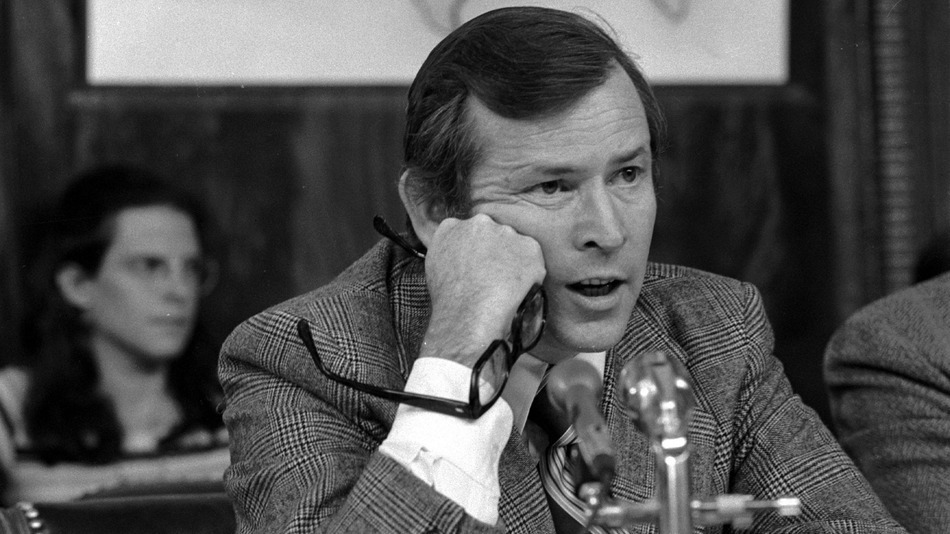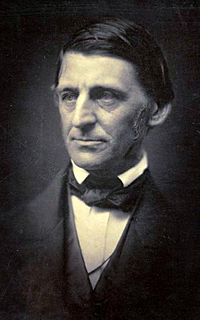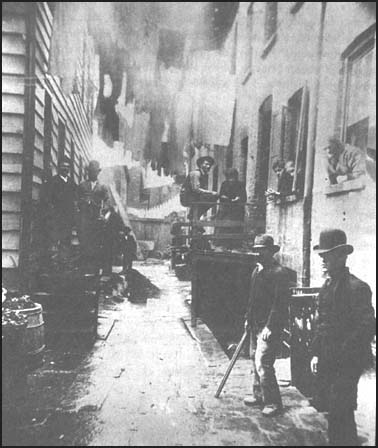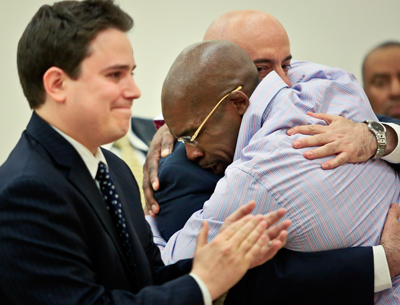« May 2014 | Main | July 2014 »
June 27, 2014
U.S. Senator Howard Henry Baker, Jr. (1925-2014)

Class Act: Sen. Baker (R-TN) at Watergate Hearings, 1973. See Chicago Tribune
Posted by JD Hull at 10:41 AM | Comments (0)
June 26, 2014
Willam Howard Taft Bridge

Lion No. 4, looking north up Connecticut Avenue, June 25, 2014
Posted by JD Hull at 06:41 AM | Comments (0)
June 24, 2014
Floundering, fear and a modicum of loathing at the EU.

And you think the U.S. economy proceeds at a limp and that citizen faith in leadership is waning? See The Perils of Merkelvellianism in England's enduring The Economist. It begins:
The European Union is in deep trouble. Growth is sluggish at best, unemployment punishingly high and deflation threatens. The European elections returned many populist, anti-EU members to the European Parliament; public support for the project has plummeted. Against this background, the squabble over who should be the next president of the European Commission, the EU’s executive arm, looks an ever more dangerous tragicomedy: Franz Kafka meets Dario Fo.
The front-runner for the job is Jean-Claude Juncker (pictured). The former prime minister of Luxembourg was picked as “lead candidate” by the centre-right pan-European political group, the European People’s Party (EPP), in March. He stands for the cosy [sic] federalist consensus that many European voters want to change. He was an ineffectual head of the euro group of finance ministers, creating doubts over his ability to run the commission—a huge job at the moment.
Posted by JD Hull at 12:30 PM | Comments (0)
June 23, 2014
Rule 7: "What does the client sell?" "Who are the client's customers?"
See Rule 7: Know the Client. Every great client wants you to know him, her or it.
Take time out to learn the client's stock price, day-to-day culture, key management figures, industry players, industry reputation, overall goals and major things it tells the Securities and Exchange Commission. The client is publicly-traded, you say? Wonderful. You have much to read, friend. Also get a feel for what other credible sources--the client's website and public filings are not enough--are saying out there about your client.
Visit the client's offices and plants, too, especially if the client is small or privately held. Seeing live operations and key players moving around and interacting speaks volumes. Early on, and for every client, see as much as you can in 3D. Hey, it's fun. Do it free of charge.
Learn something about the client's history. Get a grip on its past and true origins. How your Houston-based petroleum or gas drilling client started out in 1884 in Indianapolis making pumps for bicycle tires will make sense, and maybe put a few things together for you. Even more importantly, history may tell you lots about the client's corporate "personality" and "culture", now and during the past 130 years. You may discover why the client now behaves as it does with its employees, and with vendors and competitors, or why it has a certain reputation in the marketplace.
By the way, in established and larger companies, my take is that corporate cultures and personalities--the Good, the Bad and the Strange--rarely bear any relationship to the make-up, character and day to day actions of individuals who currently lead and manage the company. And even if I'm wrong about that, personality, culture and atmospherics are certainly worth knowing about.
Finally, as you work for the client, does the talented in-house lawyer, GC or other client representative you must answer to actually pick up on your newly-acquired knowledge, nuances and insights? Yes. Absolutely.

Posted by JD Hull at 11:52 PM | Comments (0)
June 21, 2014
National Harbor, Maryland: The look of real wood and pleated vinyl.
Be advised. National Harbor makes Branson, Missouri seem like Nantucket.
Last week, at the last minute, I learned I needed to come back to Washington, D.C. two days earlier than originally planned. Unfortunately, the week marked the beginning of tourist and "school trip" seasons. Moreover, several large annual conventions raged. Congress was in session. Not unexpectedly, I found that nearly every hotel room in town (rental cars, too) was booked. So I was forced to stay for two nights at the gargantuan, astonishingly over-priced--if I type what we paid I will need to lie down for an hour--and graceless Gaylord Hotel in "National Harbor", Maryland.
But the user-unfriendly Gaylord, with its listless staff and unfathomable room numbering system, is just a detail. The problem is National Harbor. Opened in 2008, National Harbor is a "waterfront resort destination", convention center and "multi-use development" of hotels, restaurants and condos on the banks of the Potomac River in Prince George's County (in the honest but unexciting suburb of Oxon Hill). It is 5 miles across the Potomac from Old Town Alexandria, Virginia, 10 miles from downtown D.C. and, due to poor planning, hopelessly isolated from both.
National Harbor gives you an idea of what all American convention centers would be like if Germany had won the war, McDonald's was eventually commissioned to build brothels and either Teens for Jesus or the Victoria, Texas Junior League was hired to run them. It is the stiffest, most soulless 300+ developed acres you could experience in any state, province, county or country. It features bad architecture (everywhere), boisterous, insincere third-rate service, fake smiles, the look of real wood, pleated vinyl and no class. Plus there is zilch Washington Metro accessibility. Just a $30 or more cab ride to either Reagan National or downtown Washington.
National Harbor, Maryland makes Branson, Missouri seem like Nantucket.
![the-awakening1-400x300[1].jpg](http://www.whataboutclients.com/archives/the-awakening1-400x300[1].jpg)
Posted by JD Hull at 08:22 PM | Comments (0)
June 19, 2014
Tramps Like Us: Heidelberg Castle.
Around 1620, Jacques Fouquières painted Germany's Heidelberg Castle, a famous structure in both German history and art, in "Hortus Palatinus" (below). Although the Castle has been in splendid ruin for most of its history, artists still flock to its foundations, gardens and terracing. Camera-toting American lawyers do, too. I've spent several hours at the Castle on each of my three trips to Heidelberg--and I am sure I'll go again. Nearly 130 years ago, Heidelberg Castle was a hit with Americans. Samuel Langhorne Clemens, better known as writer and humorist Mark Twain, wrote about the storied castle in Appendix B to his famous "A Tramp Abroad" (1880).
.jpg)
Posted by JD Hull at 03:21 PM | Comments (0)
June 17, 2014
Did Ralph Waldo Emerson and Hunter Thompson both view modern humans as uber-Weenies?
Writing in 1841, Emerson, essayist, poet and deeply spiritual Transcendentalist, is almost derisive about our progress. Hamstrung by tradition, routine and yearnings for safety, we (non-Emersonian mere mortals) cannot or will not grow:
To us, in our lapsed estate, resting, not advancing, resisting, not cooperating with the divine expansion, this growth comes by shocks. We cannot part with our friends. We cannot let our angels go. We do not see that they only go out that archangels may come in.
We are idolaters of the Old. We do not believe in the riches of the soul, in its proper eternity and omnipresence. We do not believe there is any force in to-day to rival or recreate that beautiful yesterday. We linger in the ruins of the old tent
--Ralph Waldo Emerson (1803-1882): Essays, First Series, "Compensation" (1841)

Emerson in 1857
Thompson, writing about 130 years later, while covering the turbulent, exhausting contest for the Democratic presidential nomination, including George McGovern's star-crossed campaign against Richard Nixon for the White House, is far more charitable, struggling to be emphatic with 20th century Everyman, and funny, as always--but he seems to reach the same conclusion:
Once they let you get away with running around for ten years like a king hoodlum, you tend to forget now and then that about half the people you meet live from one day to the next in a state of such fear and uncertainty that about half the time they honestly doubt their own sanity. These are not the kind of people who really need to get hung up in depressing political trips. They are not ready for it. Their boats are rocking so badly that all they want to do is get level long enough to think straight and avoid the next nightmare.
--Thompson in Fear and Loathing on the Campaign Trail '72

Thompson circa 2003. He died in 2005.
And what would each of them, Yankee mystic Emerson and unruly, feral Thompson, stepping into 2014, think about our progress now? Have we learned to "let our angels go"?
Posted by JD Hull at 05:52 PM | Comments (0)
June 16, 2014
Happy 799th, Magna Carta.
The Magna Carta (Great Charter) celebrated its 799th birthday yesterday. The Charter was of course imposed by feudal barons on King John at the banks of the Thames near Windsor, England, on June 15, 1215. By limiting the king's absolute power, and protecting the rights of at least some of his subjects, the document wisely signed that day by King John became a critical building block in both English and American constitutional law.
The Magna Carta did mainly two groundbreaking things. It acknowledged that punishment of citizens must be under the law of the land. More generally, it also gave rise to a settled notion, and expectation, that a monarch should not and cannot act on a completely arbitrary basis.
What spurred the barons to confront King John? Answer: Taxes, mainly, without notice, over and over again, to pay for John's lackluster military campaigns on the continent.
What? You know all about the Great Charter. Okay, then by all means take this test one of our Brit cousins over at The Telegraph devised over the weekend for countrymen and colonials alike. At our shop, only the patrician Holden Oliver, with his first rate 17th century mind, got all the answers right.
.jpg)
A reprinting in London in 1600s.
Posted by JD Hull at 08:29 AM | Comments (0)
June 15, 2014
Hell's Kitchen, NYC

Jacob Riis photo of Bandits' Roost (1890)
Old neighborhoods, like old people, have strong personalities. And they are feisty as Hell.
The above photograph of an alley in Hell's Kitchen, then in its second century, was taken long before the midtown Manhattan neighborhood got cute and trendy again. The work, images and outcry of Jacob Riis were famous at the time. So was this photograph.
But Hell's Kitchen actually started out cute and even pastoral. Three hundred years ago there were farms. Then came suburbs, and it was not really a "bad" neighborhood until around the time of the Civil War. Movies and novels maybe over-covered that second 150 years. Hell's Kitchen kept changing but stayed famous: from Irish and German immigrant sub-city to gangland neighborhood to actors' quarter to, these days, more of a yuppie heaven.
People feared the second round of "cute"--the gentrification of recent years--would destroy it. It didn't. It's still authentic in pulse and atmosphere. A few (not many) old families could afford to stay. Real estate brokers years ago came up with the new labels of Clinton and "Midtown West"--but those did not work. They could never replace the real name, the one that no one can even trace.
Yeah, older neighborhoods, like older people, have personalities--and they are feisty as Hell.
Personally, I think of the area as smaller and more compact than most descriptions. For me, it does not start until just north of the Lincoln Tunnel at 40th and then goes up to 57th Street. Its width, of course: West of 8th all the way to the Hudson. Yet it always seems worlds away from Times Square, right next door, and Midtown East.
If you are in Manhattan some weekend, stroll around there on a Sunday morning early, when it groans, complains and even growls like its old self. You will not head east. You won't even think about leaving Hell's Kitchen for a while. Too seductive. The uneasy mixes of Irish, German, Italian, and Everyone Else that dominated it--especially in the last 150 years--left certain imprints and energies. You can still feel and hear them in the stone of the buildings and street.
Posted by JD Hull at 10:59 AM | Comments (0)
For the Love of Cuba: Rick Garcia, an artist's artist.

Above: "Love and Hate", by Rick Garcia. Born to Cuban parents, Miami native Rick Garcia was raised in a household where Cuba and the Cuban people was a daily subject of discussion. As an artist, Garcia in recent years began to mix images of "old" Cuba with a more contemporary pop treatment to capture Cuba's sounds, colors, textures, energies and spirit. Rick Garcia's websites are here and here.
Posted by JD Hull at 04:38 AM | Comments (0)
June 14, 2014
American national anthem, 1970.
It's not too far back on the highway not so long a ride.
You park the car out in the open you can walk inside.
A little cutie takes your hat and you can thank her ma'am,
'Cause every time you make the scene you find the joint is jammed.--Charles Edward Anderson Berry (1926 -)
Posted by JD Hull at 02:37 PM | Comments (0)
June 13, 2014
Did we all die and go to Hallmark?
"Praise empowers people, criticism intimidates, ignoring confuses."
--Via LinkedIn mail this morning
Died and went to Hallmark. That's the feeling we had when we read this somewhat Orwellian sentence quoted immediately above. A few inches below, you see the cheery declaration again, this time in its original form, and the way it appeared this morning on the happy, positive thumbs-up image. Just two other things. First, we prize solving hard problems for customers. That's what we do. It's what any services provider does. Second, we would never build, and would not feel comfortable spending any time around, a workplace culture that: (1) praised employees for no reason except to make them feel good, (2) withheld criticism (even harsh criticism) from employees to avoid hurt feelings, (3) expected senior people and supervisors to worry about the effect of every word and action on employees, and (4) otherwise put employees ahead of customers.
Have a nice weekend, everyone. Whether you are working or playing, don't hold back.

Posted by JD Hull at 01:31 PM | Comments (0)
June 12, 2014
"Vas you ever in Zinzinnati?" And if they fought, would Cleveland beat up Cincinnati?
Good morning, Buckeyes. Well, to be fair, The Pretenders' classic "My City Was Gone" (better known by its snarky, ironic refrain "Hey Ho/Way to go/Ohio") in the live recent performance below is about the Akron-Cleveland megapolis in northeastern Ohio where the band's leader, Chrissie Hynde, grew up the 1960s and 1970s. In the 1982 song, Hynde complains about the environmental and other damage that industrialization eventually did over the decades to the region and her "pretty countryside".
Things got better, though, by the end of the 1980s. As in the similar case of steel-making Pittsburgh, Ohio's northeast reinvented itself as a center of business services, banking, smaller busineses, health care, sports and even the arts. And Cleveland, of course, is the Rock 'n Roll Capital of the World. But the rust belt still starts here, and anyone can see the scars on the land: a reminder of the area's historical importance in as a blue collar stronghold in shipping, refining, processing, and automobile parts manufacturing, and the social price paid for it.
"My City was Gone" is not about or directed at Cincinnati, which was the last of several hometowns I had growing up in the Midwest. Cincy is more white collar--it has always been primarily a town of professionals and business people. It is also smaller, more conservative, and less industrial than Akron-Cleveland. It's civilized and pretty if nothing else. Also, it actually sits on the Mason-Dixon line. The Queen City, with its rolling topography, forested hills and bluffs overlooking the Ohio River, is on the northern edge of the American South, tucked away in the the extreme southwest corner of Ohio. It's more relaxed than other Northern cities. Cincinnati people speak with a faint southern drawl.
In thier own ways, of course, Cleveland and Cincinnati are unique, vibrant and great American towns. But we do think that in a fight between these two cities--you know, like a fist fight in the street as in days gone by--that gritty and blustery Cleveland would beat up smart, respectful Cincinnati. (Yeah, we think about these things, including who could beat up who in the office.) Chrissie Hynde? She lives mainly in London these days. Finally, "Vas you ever in Zinzinnati?" is a book by Dick Perry, a great Cincinnatian. Now that we have all that straight, many thanks to one-time Buckeye Ray Ward for his fine ear and generosity.
Akron's Chrissie Hynde laments the loss of her past Ohio in a powerful rock anthem she's performed for thirty years and only she can make work.

Cincinnati's famous Over-the-Rhine district, an architectural and multicultural wonder of nearly 900 older buildings in one 'hood.
Posted by JD Hull at 11:52 PM | Comments (0)
June 10, 2014
Marché aux Fleurs Reine Elizabeth II.
On D-Day, June 6, 1942, King George VI was England's king and his eldest daughter, Princess Elizabeth, had just turned 18 in April. During D-Day celebrations in Paris last week, Queen Elizabeth, now 88, visited the 206-year-old Flower Market on Ile de la Cité, the island in the Seine recognized as the historical center of Paris. From the Paris blog Peter's Paris, by Peter Olson.

P. Olson
Posted by JD Hull at 01:06 PM | Comments (0)
Show of hands. How many of you in the last year have been menaced by an iPhone?
I'll be brief. More than a year ago I switched from Blackberry to iPhone--and for months I've been a robo-spazz. Late one night in April, I was in my bedroom trying to change the main mail app on the iPhone from Outlook to Gmail and started up my vintage 1987 Saab Turbo 900 parked in the garage. True story, mainly. Am I alone in this? Is your iPhone messing with you, too?

Posted by JD Hull at 05:28 AM | Comments (0)
June 09, 2014
Europe's ever-shapeshifting antisemitism just got even lower: "We'll do an oven load next time."
It's very clear what Jean-Pierre Le Pen "was thinking". He's done this kind of thing before. And at 85, the French National Front Party's founder doesn't get a pass on grounds he's a really old French right-wing fascist. When this story broke yesterday, I had to read it twice as I assumed I had misread it the first time. Here's a update at this morning's WSJ: "Jean-Marie Le Pen Comments Stir Outrage in France". It's hard to offend me with speech, but this did. Read both stories. Amazing.

Jean-Marie Le Pen
Posted by JD Hull at 10:42 AM | Comments (0)
June 07, 2014
Blowing it in Brooklyn: When prosecutors withhold evidence favorable to the accused.
Sometimes winning isn't everything. To be sure, there are times when winning is ugly and disturbing.
This morning I was riveted to "For a Respected Prosecutor, An Unpardonable Failure", by Joaquin Sapien at ProPublica, the non-profit investigative journalism project launched in 2007 that won Pultizer prizes for reporting in 2010 and 2011.
Every criminal defense lawyer is familiar with the U.S. Supreme Court's ruling 50 years ago that suppression by the prosecution of evidence favorable to a defendant who has requested it violates due process. Brady v. Maryland, 373 U.S. 83 (1963) . As a result of Brady, federal and state prosecutors are in effect under a continuing obligation to disclose information or evidence which tends to prove the innocence of a criminal defendant, or would allow the defense to impeach the credibility of government witnesses.*
Sapien has written a fine article about wrenching and almost unfathomable consequences for defendants and their families when even well-regarded Assistant U.S. Attorneys or Assistant District Attorneys fail to turn over exculpatory evidence and information. Lengthy but excellent.
*Prosecutors under Brady are also required to turn over evidence or information which could be used to reduce a sentence.

(Bebeto Matthews/AP Photo)
Jonathan Fleming (above hugging one of his lawyers) was 27 when he reported to prison after his conviction on a murder charge. Last month, after serving 24 years in prison of a 25 year sentence, Fleming, now 51, was released. The withheld evidence in his case was a time-stamped phone bill and a communication from the Orlando police (indicating Fleming was seen around his Orlando hotel at the time of the Brooklyn murder) that powerfully supported Fleming's alibi he was in Orlando, Florida rather than Brooklyn at the time the murder occurred.
Posted by JD Hull at 05:36 PM | Comments (0)
June 06, 2014
Normandy, 6:30 a.m., June 6, 1944: Our fathers and grandfathers. My heroes. The last American class.
Today marks the 70th anniversary of the Allied forces' invasion of Normandy. Although June 6, 1944 would be celebrated as the eventual end of the war in Europe, much (if not most) of the execution of the plan for the invasion's earliest hours was botched. Improvisation by the first American, British and Canadian soldiers to reach French soil won the day.
But before any of that success could be achieved, the men who were the first to arrive would experience, and eventually overcome, unexpected hell, horror and carnage that no training could have prepared them for.
This was especially true of the landing at Omaha beach. For too many--military historians think this was deliberate if strategic--Omaha was their first time in combat. At Omaha alone, there were nearly 2500 casualties, mostly in the first 2 hours, so that 34,000 could be landed on the beach by the end of the day.
It was our fathers and grandfathers, for the most part frightened but dutiful young men, who struggled onto Omaha and those five other Normandy beaches that day. These are the guys I think about more and more as I get older. We will never equal them in character, grit or resilience. That day and what they did? This is our real American class.
.jpg)
16th Regiment, 1st Infantry Division, Easy Red Sector, Omaha Beach, June 6, 1944. © Robert Capa.
Posted by JD Hull at 04:12 PM | Comments (0)
June 04, 2014
Narcissism: The New Cooties?
We all like to feel special, unique and, at times, superior. It doesn't mean we are insular, evil or bonkers. It doesn't mean you need to meet with your shrink Dr. Quaalude four rather two times a week. It means we are flawed, insecure, competitive and desperate for the Universe to acknowledge, and somehow validate, each one of us.
Narcissist. Narcissism. Narcissistic. These have been hot labels in the past few years. Lots of articles and pop psychology pieces in which writers bandy these terms around. There's been some name-calling, too. Boomers and Millennials are called narcissistic. So are certain bosses, public figures, artists, entertainers.
To name a few famous people who've been so accused: Pablo Picasso, Eva Peron, Warren Beatty, Sharon Stone, Charlie Chaplin, Margaret Thatcher, Christian Barnard, Donald Trump and William Shatner. Even Elvis. Then there are legions of more obscure folks who we see as uber-selfish, unfeeling, too full of confidence, grandiose. And a few who just make us feel uncomfortable or we just don't like.
What going on here? Is Narcissism the new Cooties, the dreaded but fictional disease you got from opposite sex classmates on the playground? If it is, let's find some other way to trash people. Let's trade in the entire narcissism lexicon for something that's fairer and we can all understand.
Because we are in over our heads, folks.
In conversation and writing, lots of non-experts--I am not an expert on this, are you?--employ the narcissism lexicon glibly snd confidently to describe all kinds of bad behavior as if everyone knows exactly what they mean. One problem with this is that nearly everyone who does it (like Tony Blair's talented friend in the article linked to below) seems to have no idea what they're talking about. Even worse, people who use the terminology often lump everyone with narcissistic traits together without making distinctions between "healthy" narcissists, garden variety egotists and deeply malfunctioning humans.
Not making those distinctions is not just silly, sad, ignorant and irresponsible. Given the powerful stigma narcissism carries with some people who are just as clueless, it's a dangerous assessment.

Retired Alpha male pol having fun. Narcissist? (Adrian Wyld/AP)
You may think, as I do, that the American Psychiatric Association (APA) and other mental health authorities--which at this point have made almost every activity, eccentricity and wondrous human foible a "disorder" or condition which requires, or will soon require, professional treatment--went slightly batshit itself years ago. My favorite is the relatively recent addition to the Diagnostic and Statistical Manual of Mental Disorders (DSM) of caffeinism. There are five (5) types of caffeinism. One is Caffeine Withdrawal, which for a few years now has been a mental disorder. I expect to see jetlag very soon.
However, the APA and these other bodies continue to have the power to flag and define sickness and disorders. The power to define mental illness in our society is the power to suggest what is moral, immoral, good, bad, acceptable, unacceptable. With respect to medical expertise especially, we are at heart compliant and conformist. We remain happy to let others do the thinking for us.
And narcissists in the public mind are very bad. In addition to the usual suspects noted above, some of the worst villains and head cases in human history make the famous/infamous people list: Stalin, Hitler, Lee Harvey Oswald, Ted Bundy, Joseph Mengele, O.J. Simpson, Jim Jones, Ike Turner and, last but not least, Simon Cowell.
Although I will never be an expert on anything scientific, I did do some homework. Apparently, we should think of narcissists in three groups. The first group includes each human being who has ever lived. We all have a touch of narcissism--and we need it to survive. It's healthy.
The second group is actual narcissists. These are people who score high on tests based on traits (symptoms) listed in the DSM. Think politicians, many execs and entrepreneurs, 1980s-era bond traders, actors, writers, surgeons, go-getters, workaholics, a good chunk of the freshman class at Dartmouth College, all AUSAs and nearly every effective trial lawyer you will ever meet. You get the idea.*
The third group is comprised of those with a clinical diagnosis of Narcissistic Personality Disorder (NPD). These are the few, the miserable, the hardcore. See my listing in the paragraph above. It's the same kind of folks--but now, according to the psychiatric community, they're stuck in the wild blue yonder, and can't get out. Their selfishness and self-absorption prevent them from ever having a meaningful relationship with another human being.
The traits for this group: (1) expectation to be recognized as superior and special, without superior accomplishments, (2) expectation of constant attention, admiration and positive reinforcement from others, (3) envy of others and believes others envy him/her, (4) preoccupation with thoughts and fantasies of great success, enormous attractiveness, power, intelligence, (4) lacks the ability to empathize with the feelings or desires of others, (5) arrogant in attitudes and behavior and (6) expectation of special treatment that are unrealistic.
The problem? On any given day, the above traits/symptoms for NPD describe most of your "enemies", and certainly every one of the insane, miserable and unreasonable opposing counsel you are putting up with. It's the candidate you are running against. It's the woman who just dumped you.
In my reading, lack of empathy stands out as a key trait shared by at least those in the second and third groups. To be honest, in my life I've met no one with zero or little empathy. However, lots of people I know seem to have trouble, at least initially, of "feeling the pain" of others. Most of them are men. I doubt that anyone who has read this far considers empathy to be a male trait. It's clearly not. So are most men narcissists?

The Narcissus, Karl Bryullov, Russian, 1819
Other traits listed in the literature were success-orientation, a sense of superiority, and seeing oneself as unique and/or special. However, we regularly see these three in people we know and love, and we still think of them as flawed but healthy. To be fair, such traits are shared by a good chunk of the student body at lots of highly selective colleges, laws schools and medical schools.
Above I used Dartmouth as an example--and to tease a couple of good friends who went there--but there are thirty or so colleges and universities in America alone which seem to hatch grads which regard themselves as "special" if not genuinely unique or elite. These people are not narcissists.
For example, have you ever talked to a Boomer-era Oberlin graduate about being an Obie? She's very glad you asked. Her eyes will light up as she thoughtfully lights up a Camel non-filter, and she may speak in hushed tones about taking off a semester to work in California with Cesar Chavez, Delores Huerta and the National Farm Worker Association, or with a SNCC voter registration project in Mississippi. Even if she is grateful or feels lucky to have taken part in these parts of the civil rights movement, often with other Oberlin people, the Obie indeed does see herself as special and unique and even somehow superior for her participation. It's a point of pride. But she is not a narcissist.
I count as friends four Rhodes scholars, two Marshall scholars and a few former SCOTUS clerks. While they are all very different from one another, I am very sure that not one of them thinks of himself or herself as just another face in the crowd. They've stretched, worked their asses off and quietly think of themselves as special indeed. A few of them might be considered overly-opinionated and difficult. But they are not narcissists.
We all like to feel special, unique and at times superior. It doesn't mean we are insular, evil or bonkers. It doesn't mean you to meet with Dr. Quaalude four rather two times a week. It means we are flawed, insecure, competitive and desperate for the Universe to acknowledge, and somehow validate, each one of us
The inability to gracefully accept criticism is another narcissism trait you read about. But how many of us are graceful and happy when we are taken down a notch or two?
Again, with each of these traits, it's a matter of degree. See the DSM-IV-TR (or the newer DSM-V) and traits from other sources to see what they are, and see how you and your friends rate.
True story: About ten years ago, I needed to cross-examine an ousted executive who sued our client and had put his mental health in issue in the case. This was new territory for us--so we bought a couple of DSM-IVs. That summer, three young litigators and a litigation law clerk in our Pittsburgh office got a hold of one of the DSMs. For fun, they went through each of the NPD symptoms. Three of the employees were amused--for lack of a better word--that they seemed to have all or most of the symptoms. One had almost none, even though she seemed to actually want to have them. Despite everyone's joking around about the self-diagnosis exercise, the non-narcissist, an ambitious young woman, was disappointed by her "low" score and reportedly envious of her co-workers who, oddly, "aspired" to some level of narcissism. No, I can't explain this. The hubris of uber-ambitious youth, maybe. Me? Yes, I took their test, too. To the amazement, or disappointment, of several people in and out of the office, I had a "low" score. Also, I got high marks for empathy. But some folks still think I cheated.
This week, certainly, narcissism in making the news again. Today The Independent, the British national morning paper, reports that a famous British novelist and longtime friend of former Prime Minister Tony Blair is now calling Blair a "narcissist" with a "messiah complex" who has abandoned Britain to make money and "hang out with a lot of rich people in America" (other narcissists?). On the quality of life side of things, those of you with serious narcissists in your life (or office) can read "How to Make the Narcissist in Your Life a Little Nicer", appearing yesterday in The Atlantic. It's about "compassion training" for the working narcissist.
One last question. Why are there so few articles over the years addressed to narcissists themselves? Can they not be saved? Or is it that we all just need a few blustery folks to look down on?
*I'm 100% serious about this list--as humorous as the list might be. Moreover, these are the kinds of people I tend to like, admire and hang out with. They challenge me, stretch me and make me feel alive.
Posted by JD Hull at 02:55 AM | Comments (1)
Blaise Pascal: On Brevity.
I have made this letter longer--because I have not had the time to make it shorter.
--Blaise Pascal (1623-1662), mathematician, physicist, philosopher, in "Lettres Provinciales", No. 16, 1657

Posted by JD Hull at 12:00 AM | Comments (0)
June 02, 2014
Client Money.
Rule 8 is Think Like the Client--Help Control Costs. Knowing what the client is paying your firm informs and affects the strategy of every big project and, if the stakes are high enough, affects even the overall business strategy of the client.

(MTV/Mike Judge)
Posted by Holden Oliver (Kitzbühel Desk) at 11:59 PM | Comments (0)
Writing Well: Consistency.
You and your firm are judged by every piece of writing that goes out the door.
--A wise person, possibly Dan White, lawyer-writer-humorist

Henry Miller, American writer (1891-1980)
Posted by Holden Oliver (Kitzbühel Desk) at 11:36 PM | Comments (0)